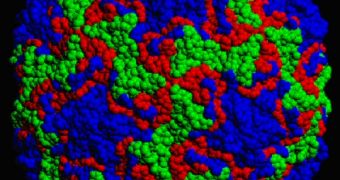The human rhinovirus (HRV) is the main culprit behind the common cold and the flu. These epidemics affect millions of people yearly and a drug to completely eradicate them has yet to be devised, because of their high mutagen potential, meaning that the virus changes its structure yearly. As a result, the only way to advert the afflictions from settling in is to vaccinate people against the most common strains.
Children and the elderly are most exposed to the effects of common cold and flu, as their immune systems are weak and unable to handle the strain HRV places on them. Researchers have been trying to find an efficient way of averting the symptoms of the flu for some time, but to little results. Now, they argue that, by increasing the dosage of flu vaccines the elderly receive, it's possible to incite an increased immune response in their body.
As a direct result, their bodies generate 30 to 80 percent more antibodies, which can successfully battle and defeat the virus and prevent it from settling in. "Without doubt, the influenza vaccine as it is today is beneficial for everyone, including older adults, and we strongly encourage every older person, and every person with a chronic illness, to get vaccinated," explained associate professor of medicine Ann Falsey, M.D., working from the University of Rochester School of Medicine and Dentistry.
In order to boost the response of the immune system, more quantities of all flu strains need to be inoculated into each patient. Regular vaccines contain some 15 micrograms of active substance, while the vaccine used in this experiment had some 60 micrograms of immune system-boosting material. Regular drugs work by inserting small quantities of pathogen into the patient, thus allowing the organism to assimilate and destroy the infection.
"These are the people at the highest risk for becoming very sick from influenza, and we saw significant improvement in the immune response in many of these people. This is very encouraging," concluded Falsey. "However, older people generally don't respond to vaccines as well as young healthy adults and therefore, there is much room for improvement."

 14 DAY TRIAL //
14 DAY TRIAL //